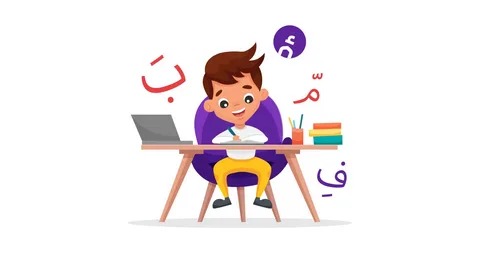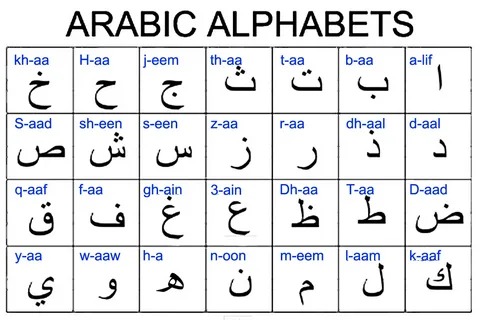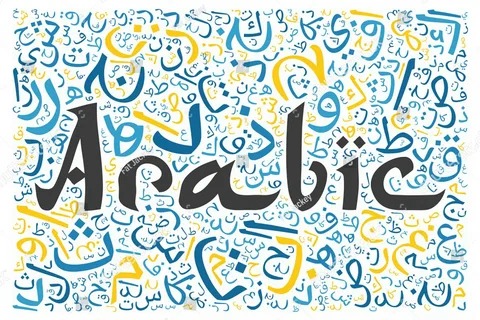Learning to read Arabic is a rewarding journey that opens doors to a rich literary tradition and deep cultural insights. However, many aspiring learners wonder about the time it takes to achieve proficiency in Arabic script. In this article on Arabian Tongue website, we’ll clarify How Long Does It Take to Learn to Read Arabic?, the intricacies of learning to read Arabic, exploring the factors that influence the learning process, and providing a realistic timeline for learners.
Why Learn Arabic?

Arabic is one of the most widely spoken languages in the world, with over 300 million native speakers. It’s also the liturgical language of Islam and holds great significance in various fields such as business, politics, and academia. Learning Arabic can open up new opportunities for communication, understanding, and cultural appreciation.
Factors that help you learn to read Arabic
There are some factors that you can determine the duration of learning to read in Arabic, which is:
Your Prior Language Experience
Your previous experience with languages, particularly those with non-Latin scripts, can significantly impact the time required to learn Arabic reading. If you’re already familiar with a script like Hebrew or Urdu, grasping Arabic script might be quicker.
The Arabic Alphabet
Before embarking on your Arabic reading journey, it’s crucial to understand the complexity of the Arabic alphabet. Unlike the Latin alphabet used in English, Arabic script consists of 28 letters, and each letter has multiple forms depending on its position in a word.
How Long Does It Take to Learn to Read Arabic?

The stages of learning to read Arabic are divided into three stages:
- Beginner Stage: In the initial stage, you’ll focus on mastering the Arabic alphabet. Expect to spend several weeks practicing individual letters and their variations.
- Intermediate Stage: Once you’re comfortable with the alphabet, you’ll move on to forming words and basic sentences. This stage typically takes several months.
- Advanced Stage: At the advanced stage, you’ll start reading more complex texts, which could take anywhere from a year to a few years to master, depending on your dedication and practice.
Dedicated Learning Methods
The methods of learning the Arabic language differ according to several factors that affect the time you need:
- Formal Classes: Enrolling in structured Online Arabic classes with a qualified teacher can accelerate your learning process. Such classes often span several months to a year.
- Self-Study: If you’re learning independently, daily practice and immersion in Arabic materials are crucial. Self-study may take longer but offers flexibility.
- Similar Script Languages: If you already know languages with a script similar to Arabic, such as Persian or Urdu, your learning curve might be less steep. Expect around six months to a year.
- No Script Familiarity: For learners with no prior exposure to non-Latin scripts, the learning process may take up to two years or more.
- Living in an Arabic-Speaking Country: Immersing yourself in an Arabic-speaking environment can significantly expedite the learning process. This level of immersion may lead to proficiency in as little as six months.
- Limited Exposure: Without daily immersion, progress will be slower. Plan on dedicating at least a year to become proficient.
Useful Tips To Accelerate Your Arabic Learning

Learning a new language can be a rewarding experience, and when it comes to Arabic, it’s no different. Arabic is a rich and diverse language with a unique script and a deep cultural history. Whether you’re learning Arabic for business, travel, or personal enrichment, there are several tips and strategies that can help you accelerate your learning journey:
Setting Clear Goals
The first step in accelerating your Arabic learning is to set clear and achievable goals. Determine why you want to learn Arabic and what level of proficiency you aim to achieve. Are you learning for travel, work, or personal interest? Setting specific goals will help you stay motivated and focused throughout your learning journey.
Choose the Right Learning Resources
Selecting the right resources is crucial for effective language learning Program. Consider enrolling in a reputable Arabic language course or using online platforms like Duolingo, Rosetta Stone, or Memrise. Additionally, invest in Arabic textbooks, dictionaries, and language apps to aid your studies.
Consistent Practice
Consistency is key when it comes to language learning. Dedicate a specific amount of time each day to practice Arabic. Regular practice will help reinforce what you’ve learned and improve your language skills over time.
Immersion
Immersing yourself in the Arabic language and culture can greatly accelerate your learning process. Watch Arabic movies, listen to Arabic music, and try to converse with native speakers whenever possible. This immersive approach will expose you to the language in real-life contexts.
Join Language Communities
Joining language communities or forums can provide you with valuable insights, support, and practice opportunities. Online communities like Reddit’s r/learn_arabic or language exchange platforms can connect you with fellow Arabic learners and native speakers.
Practice Pronunciation
Arabic pronunciation can be challenging due to its unique sounds. Practice speaking aloud, and consider using pronunciation guides or working with a language tutor to perfect your accent.
Learn the Arabic Script
The Arabic script is distinct from the Latin alphabet, so dedicating time to learn it is essential. Start with the basic characters and gradually work your way up to more complex script forms.
Handwriting Practice
Improve your writing skills by practicing Arabic script handwriting. This will help you become more comfortable with the script’s intricacies.
Read about: Reasons for learning Arabic online.
FAQs
Can I learn to read Arabic if I have no prior language experience?
Yes, you can. It might take more time and dedication, but it's entirely possible.
Do I need to live in an Arabic-speaking country to learn quickly?
While it helps, it's not necessary. You can learn Arabic from anywhere with dedication.
What resources can I use for self-study?
There are numerous online courses, textbooks, and language apps available for self-study.
How can I maintain my Arabic reading skills once I've learned them?
Continual practice, reading Arabic texts regularly, and conversing with Arabic speakers will help you maintain your skills.
Is learning to read Arabic worth the effort?
Absolutely! Learning to read Arabic opens doors to a rich cultural heritage and enhances your understanding of the language.
Conclusion
In conclusion, the time it takes to learn to read Arabic varies widely based on several factors. While some learners may achieve proficiency in as little as six months, others may take up to two years or more. The key is to set realistic expectations, dedicate consistent effort, and choose the learning method that suits you best.


